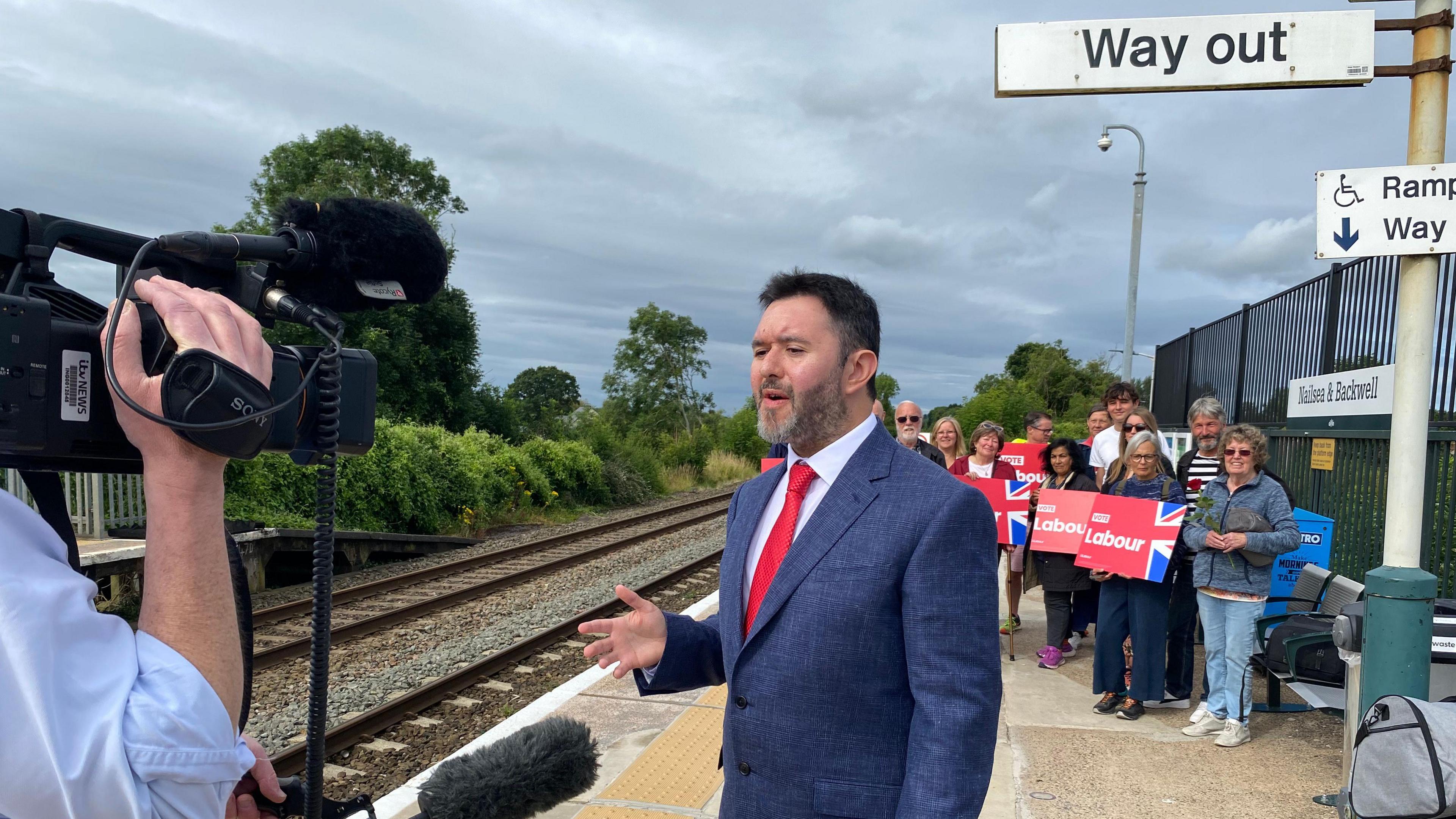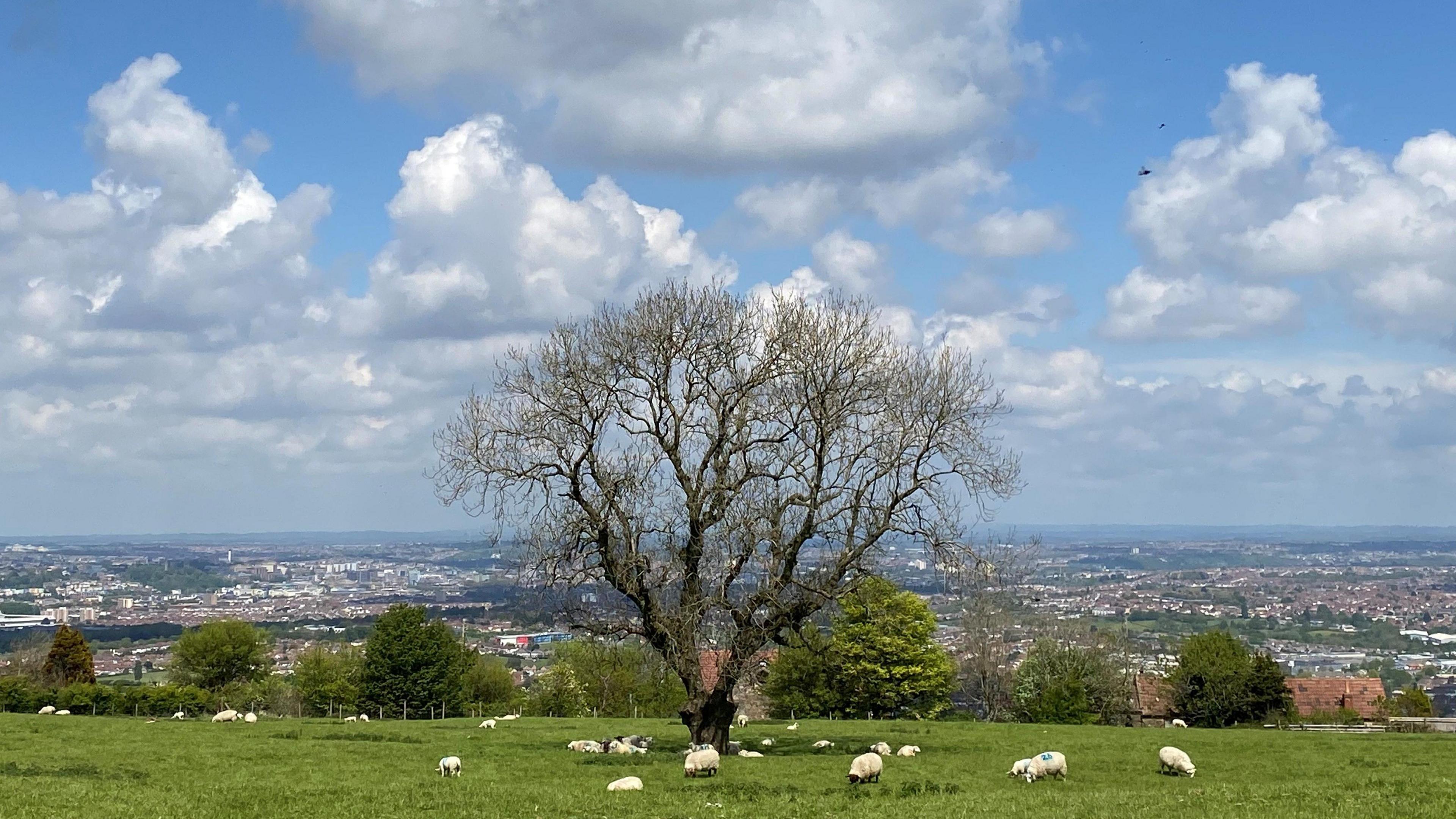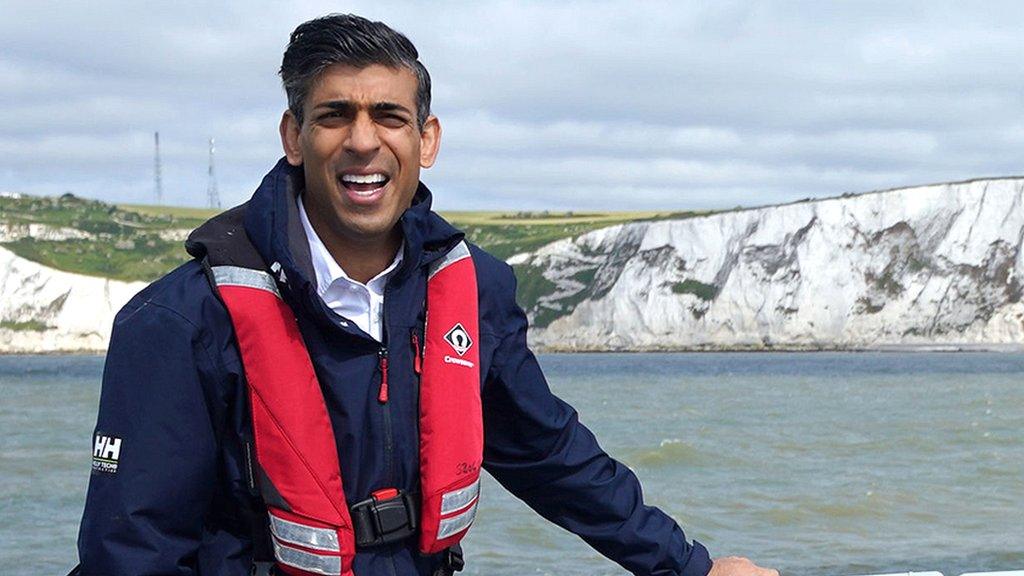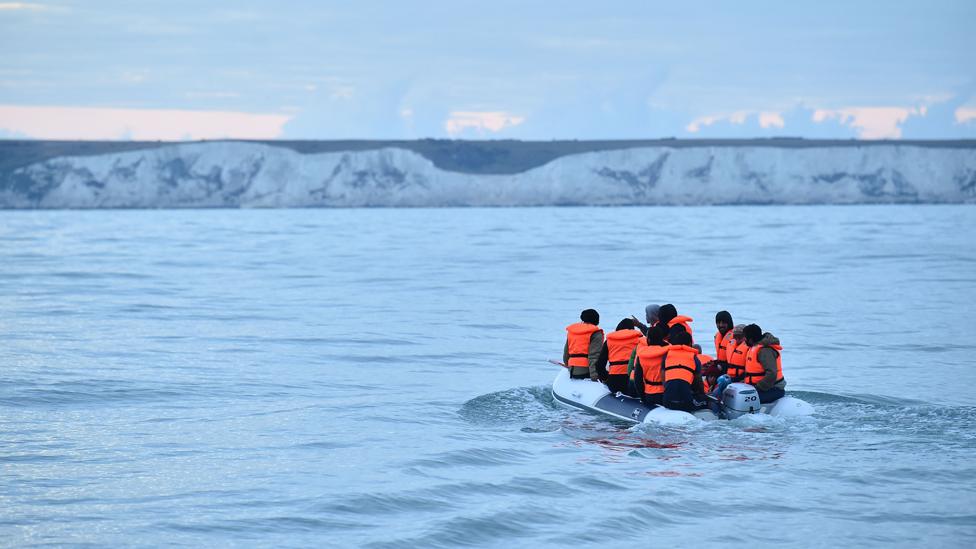Net zero migration a 'gimmick' says new Labour MP

Sadik Al Hassan won the seat of North Somerset for Labour for the first time ever earlier this year
- Published
North Somerset MP Sadik Al Hassan has rejected the policy of net zero migration as Labour approaches 100 days in office.
He was speaking from the top of Dundry Hill in his constituency, on the request of a contributor to the BBC's Your Voice Your Vote campaign.
Simon, who wants to see net zero migration, e-mailed to suggest politicians look at Bristol from Dundry and equate it to net migration - 685,000 in 2023 - higher than the population of the city.
But Mr Al Hassan said the policy was neither achievable or desirable.
Net migration, the difference between people arriving into the UK and those leaving it, has risen substantially since 2019 according to official figures, reaching 685,000 in 2023.
During the general election campaign Labour, who will pass 100 days in office on 12 October, pledged to reduce it.
Writing to the BBC earlier this year Simon, who lives in North Somerset, said: "Politicians should stand on top of Dundry Hill and look at the view of all the districts and estates of Bristol as far as the eye can see.
"This shows the scale of the problem. We need to build another Bristol every year just to stand still.
"Zero net migration should be the priority."
Reducing net migration to zero was a key policy of Reform who picked up record numbers of votes during the general election.
But MrAl Hassan, whose father emigrated to the country in the 1970s, said: "The policy is unworkable in a global economy.
"The idea we can go back in time and become an island to ourselves without migration is just a lie."

The view from Dundry Hill in North Somerset stretches beyond Bristol to south Wales
'A terrible situation'
According to Mr Al Hassan, who ended a century of Conservative domination in North Somerset in July, the issue was mismanaged by the previous government.
"We've inherited a terrible situation with uncontrolled migration," he said.
"Migration, generally speaking, is a good thing. It helps us solve some of the problems in industry where we don't have the right skillset, but 700,000 people coming in isn't controlled."
Labour have promised to reduce the reliance on overseas workers, and improve training to reduce demand. Most in work migration in 2022 and 2023 came from the health and care industry.
Whilst the party scrapped the previous government's controversial Rwanda scheme on their first day in office, other measures, such the ban on partners and children of care workers plus most overseas students remains.
Meanwhile, the government has also pledged to go after people-smuggling gangs in an effort to stop border crossings from the English channel, although this accounts for a very small proportion of overall net migration.
"It's important that everybody can talk about the real effects of migration, the positive impacts it can have on our society.
"But we have heard the message [from the public] - Labour is going to control it," Mr Al Hassan added.
Conservative leadership candidate and former immigration minister Robert Jenrick, one of three possible leaders left after recent party voting, has pledged to push for an effective freeze in net migration.
Follow BBC Bristol on Facebook, external, X, external and Instagram, external. Send your story ideas to us on email or via WhatsApp on 0800 313 4630.
Related topics
- Published2 July 2024

- Published25 March 2024

- Published30 January 2024

